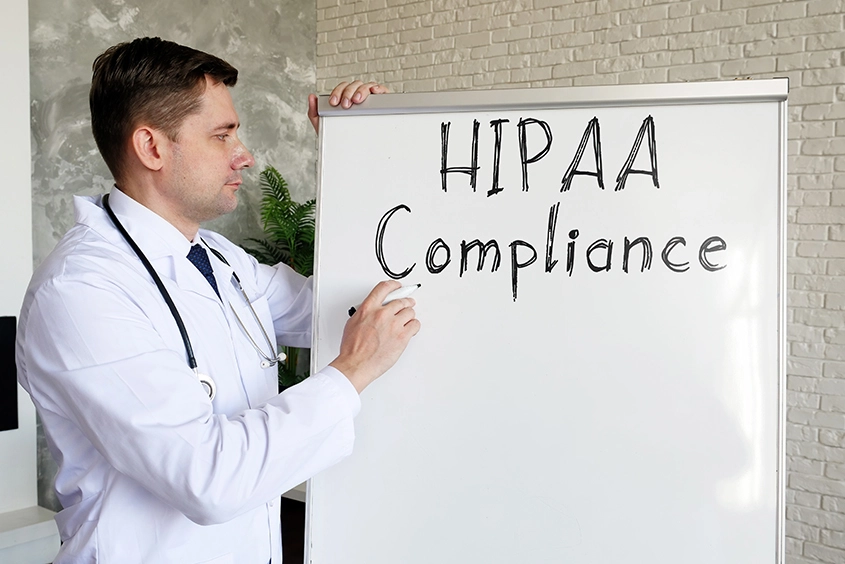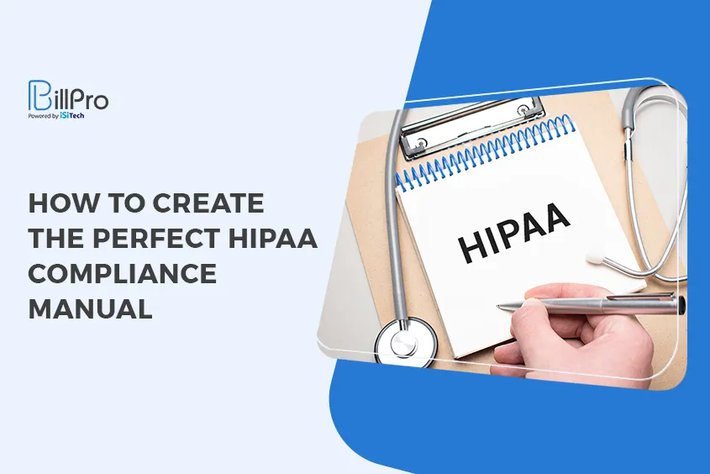The Health Insurance Portability and Accountability Act (HIPAA) is a federal law that requires healthcare providers, or anyone working with protected health information (PHI), to develop and follow a set of guidelines detailing how they plan to store and share confidential information in a secure manner. If you’re facing the important task of creating a HIPAA policy for your company, you probably have a lot of questions about the process. The first thing you should understand is that policies and procedures will look different for every business. HIPAA sets forth general guidelines for each company, but since every business operates differently, you need to make sure it fits your model. Take this process one step at a time, and you’ll end up with a HIPAA policy that keeps your business in check.
Apply the Guidelines to Your Business Model
Before you start writing down policies simply because you think it’s what HIPAA officials want to see, you need to have a thorough understanding of how your facility is run. You should already have a good idea of the particular areas of need and risk present at your business. For instance, if you’re working for a big hospital, you need policies written in much greater detail than you would at a small, specialized practice. Understanding your business’s unique needs is the first step; applying HIPAA guidelines to those needs is the next.
Take Note of Your Current Processes

If you’re in the healthcare industry, you’re already following HIPAA guidelines—so why not look toward your current process for some guidance? In reality, the processes you’re following each day have become second nature. Rather than starting from scratch, sort through the resources already at your disposal. Decide what’s definitely working and which areas need to be massaged or disposed of all together, and develop an updated process that works for your company.
Write the Policy in Layman’s Terms
Part of being HIPAA compliant is ensuring that your staff understands the policies you create. If your policies are written in difficult-to-understand medical jargon, chances are your employees are going to have some trouble fully comprehending what’s expected of them. When in doubt, keep it simple. Record what your staff needs to know in order to work in a compliant manner, and leave out all the extra technical stuff. The result is two-fold: your employees understand how they’re expected to work, and you’re less likely to face HIPAA violations because of it.
Implement Your Policies ASAP
As soon as you’ve finalized your HIPAA policies, it’s time to implement them at your practice. This begins with distributing copies of the policies to everyone at your practice. Along with separate training sessions, you should ask your employees to read, review, and ask any questions about the policies. When they feel they have a good understanding of the policies, they should sign off stating that they have read and understand them. This is a good way to hold your employees accountable for their actions and also a good way to create a trail for any future audits.
Hold Policy Training Sessions

Once your policies are in your employees’ hands, you should hold training sessions to ensure everyone understands those policies to the fullest extent. The training can be structured in any way you see fit—whether that’s breaking up your team into smaller groups, creating a slideshow with workplace scenarios that asks employees how they would handle each situation, or something different entirely. The important thing is that your employees walk away understanding the company’s HIPAA policies, and you walk away confident that your business isn’t at risk of a HIPAA violation. These sessions can be held monthly, quarterly, or any amount of time you see fit. It’s important to remember that any time you hire a new employee, they must receive the written policies along with some level of training. The time and effort you put into making sure everyone understands their duties is well worth it when it means avoiding serious HIPAA violations.
Commit to NY Medicaid Billing Software
Looking for a solution that boosts efficiency and improves HIPAA compliance at your practice? Reliable billing software is the answer. Having a tool that automates your entire billing process is a smart way to ensure you’re keeping your data safe and secure. Billing software eliminates the need for paper files and manual data, making important information easier to find and share. Additionally, billing software allows for faster processing times, ensuring you get the money you’re owed faster than ever before. It’s much easier to meet HIPAA compliance when you’re working with an electronic system, which puts safeguards like encryption and two-factor authentication in place to avoid simple HIPAA violations. The bottom line is, billing software helps your business in more ways than one. Don’t wait to make the switch.
Request a Free Demo of BillPro Today
Ready to invest in a product that betters your entire operation? The BillPro team would love to talk to you. We offer free demos of our New York Medicaid billing software to anyone who’s interested, so you can see exactly how our system works and assess whether it’s the right choice for your business. If you’re interested in improving your billing process and HIPAA compliance, get in touch with our team today to book your free demo!

 5/5 (1 vote)
5/5 (1 vote)
 252 views
252 views




